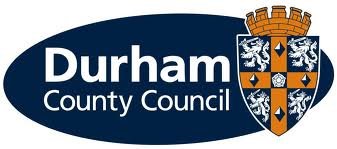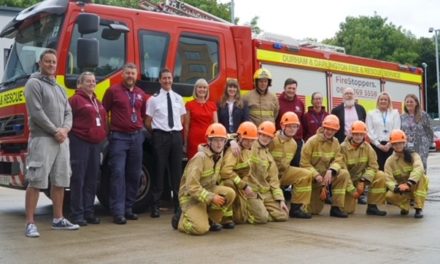A GROUND-breaking project to bring business and health organisations together is being launched in County Durham to put the region at the forefront of innovation in tackling the healthcare causes and consequences of social isolation. ‘Durham Smart County’ will see the County Council join forces with the local health organisations, the voluntary sector, the universities and private companies to identify specific health issues and then support companies as they come up with innovative products and services which will make a difference to people’s lives. This is an innovative approach by a local authority, which sees it presenting a problem to the market and asking the market to be creative in developing solutions, rather than procuring defined solutions. The county currently performs worse than the England average across life expectancy, obesity, poverty, alcohol abuse, self-harm and smoking. The aim of the project is to help businesses with crucial early stage support in the development of new products and services which will tackle some of the region’s health issues. Smart County envisages businesses could be supported to develop a range of products and services which will be innovative in encouraging us to engage in all aspects of health. Our health is a serious matter but creating (or adapting) products and services that make it “playful”, or even competitive, will improve overall general physical health by encouraging participation in prevention, diagnosis, treatment and rehabilitation, and improve social interaction if used in community settings and across different age groups and generations. Many of the world’s most famous companies started on the back of this type of early stage contract from governments. • Vodafone, the UK’s most successful start-up since the Second World War, was spun out of Racal, a company built on contracts from the MoD to develop wireless technology • Porsche started as an automotive design company which secured a contract from the German government to design a new type of car (the eventual design was the VW Beetle). Catherine Johns, director of innovation at Business Durham, the economic development company for County Durham, said the common thread through the previous examples was a willingness of public organisations to act as a ‘lead customer’, supporting businesses through early stage exploration of concepts as they developed new products and services. “It’s innovative for a local authority to do this,” she said. “This is about early collaboration so, rather than define solutions, we work together to frame the problem correctly. It is bringing together people who would never normally interact and sharing knowledge across disciplines and sectors.” Councillor Neil Foster, Cabinet member for economic regeneration and culture, said: “The council has a proven track record of using its spending power in a way that adds real value for residents of County Durham. Such as measures to increase opportunities for local suppliers to win contracts; making sure money stays in the county’s economy, creating jobs for people living in the area. Durham Smart County will see these benefits going even further, potentially helping the development of entirely new products that enable people to live longer and healthier lives.” Councillor Lucy Hovvels, Cabinet member for adult and health services, said: “We’re committed to improving the health and wellbeing of residents across the county but, like all areas, we face challenges across a range of issues. Durham Smart County is an innovative approach which we hope will encourage the private sector to discover new ways to help the council tackle these problems.” Hans Moller, innovation Director at the North East Local Enterprise Partnership said: “The North East LEP is delighted to be supporting Business Durham on the innovative Durham Smart County project as its findings will have a huge impact on the delivery of future regional projects and campaigns. The very best ideas will be turned into products, services or approaches that will have a positive impact on people’s lives. We very much see it as a test for the LEP’s HealthQuest approach, just one of the ways we’re exploring how, as a region, we can improve health and wellbeing.” For more information on how to get involved, please visit www.businessdurham.co.uk/durhamsmartcounty
Businesses to Help County Council Tackle Health & Wellbeing









